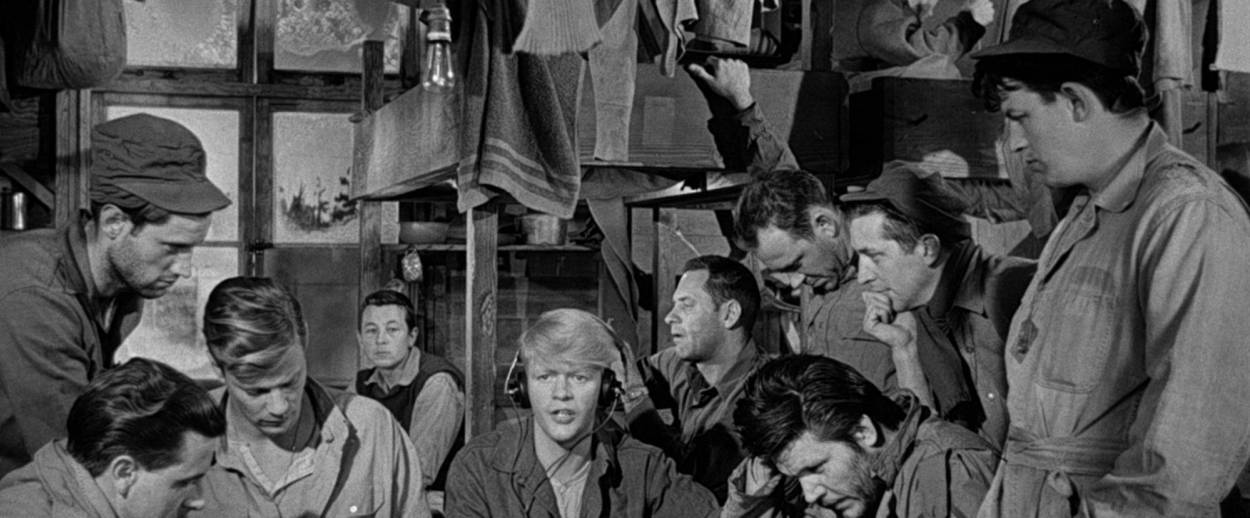What to Watch This Weekend: ‘Stalag 17’
Billy Wilder’s masterpiece makes you feel the humidity of 20 men in a room




Every Friday, our resident film fanatic Alex Aciman will dig deep into the pile of cinematic masterpieces and fish out one forgotten classic you should watch soonest.
Before The Bridge on the River Kwai, before The Great Escape, before Chicken Run, there was Stalag 17. Written and directed by Billy Wilder and starring William Holden, Stalag 17 is the story of American air force soldiers holed up in a German army prison barracks. Life is full of the usual prison drudgery until the world of this tiny little shack is upturned when the prisoners begin to suspect that someone among them is a German spy. All heads turn toward William Holden.
Although this movie, like most army prison camp films, revolves around an attempted escape, Stalag 17 does something unusual. Instead of focusing entirely on the details of an escape, or on interpersonal antics and squabbles over things like chocolate rations, Wilder took a cue from The Grand Illusion and decided to tell a bigger story about lives that have been put on hold. The men of Stalag 17 assume temporary wartime identities as a way of coping with the fact that they have been forced to abandon their real lives—their American lives. Some of them receive letters from home, often with bad news; others lust after movie starlets whose films they haven’t been able to see in years. These final connections to their prewar lives are dissolving quickly. Small routines are not a way of adjusting to life in prison, but a way of staving off madness. The setting is suffocating. Unlike The Great Escape, these soldiers don’t get to run around distilling alcohol and hanging out all day. In this film you can sense just how narrow and just how small the barracks is. You can feel the humidity of 20 men in a room. Stalag 17 doesn’t romanticize the prison experience. At times it makes The Great Escape look like a caper.
William Holden plays a savvy operator—one of the few men who is willing to barter goods and services with his German captors. He doesn’t think in the rigid, mechanical way that soldiers do. Unlike many of the other prisoners, Holden seems to have completely shed the wartime identity and resumed a kind of louche, street-smart personality like the one he must have had back home. This, ultimately, is what sets him apart and makes him an outsider among the men. It is also what makes him the prime suspect.
Holden’s fellow prisoners beat him to a pulp and remain suspicious, all the while trying to hatch a new escape plan. Using his cunning, Holden finally manages to exculpate himself and expose the real threat to the men of Stalag 17.
But what really helps transport this film beyond the realm of the typical prison camp drama is that Wilder uses it as an opportunity to transpose all of his punchy dialogue, wit, incisiveness, and love of reversal onto a war story. Stalag 17 is essentially a traditional Wilder film, complete with the kind of pace and intimacy typically reserved for the stage.
Alexander Aciman is a writer living in New York. His work has appeared in, among other publications, The New York Times, Vox, The Wall Street Journal, and The New Republic.